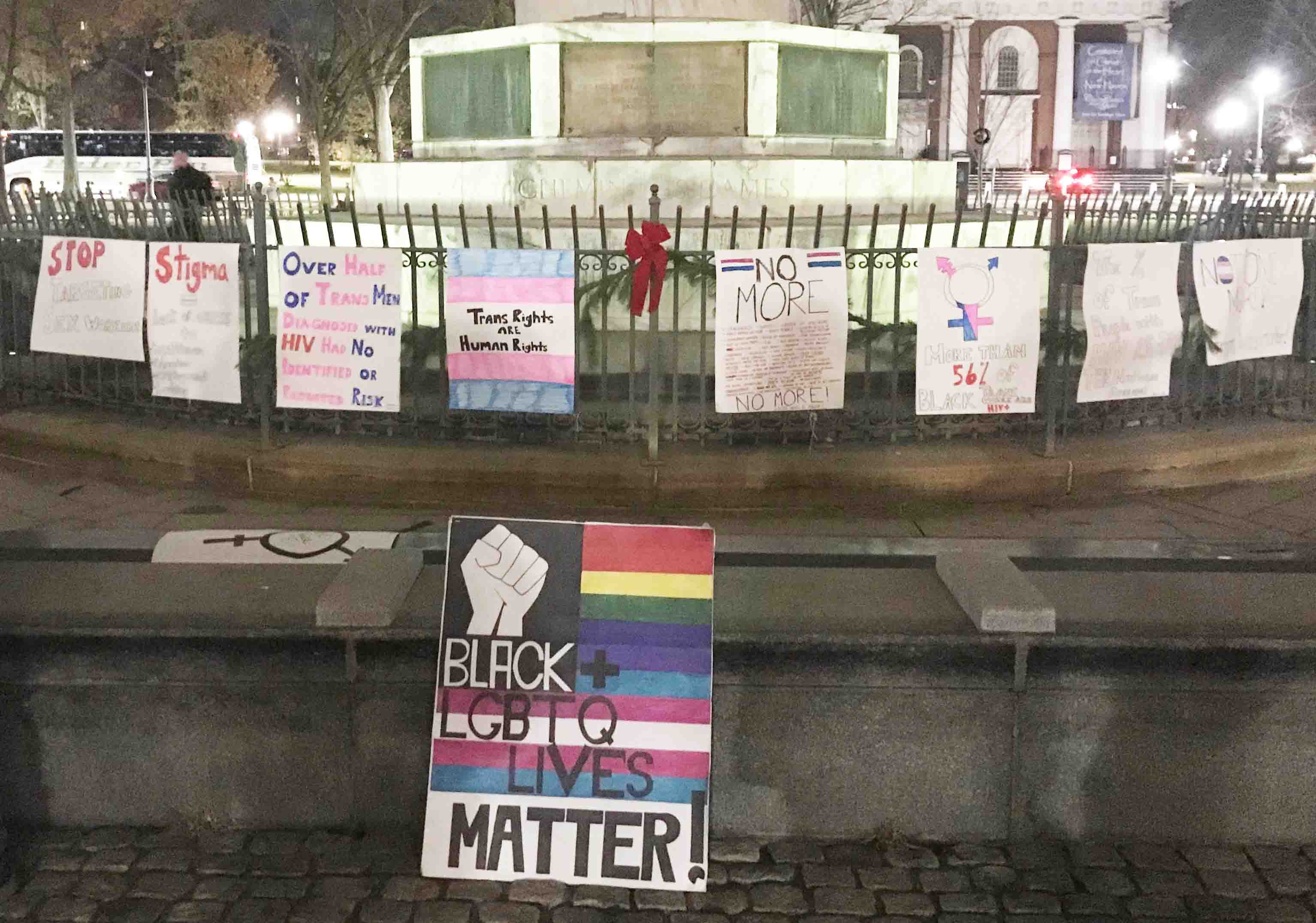
AIDS Project New Haven and the New Haven Pride Center held a public rally on the New Haven Green Tuesday evening to support members of the transgender community living with HIV/AIDS as part of HIV/AIDS Awareness Week.
The event began with an address by Kyle Rodriguez, prevention services coordinator at AIDS Project New Haven. The program is extending HIV/AIDS Awareness Day to a weeklong celebration for those who live with HIV/AIDS, Rodriguez said. The rally kicks off the week of events, which will include a fundraiser, a film screening and a keynote conversation.
“Rallies are usually very exciting and energetic, and so I wanted the transgender community to have this platform to share their experiences,” Rodriguez said. “They are often left out from a lot of the data; they don’t have a seat at the table to make their voices heard.”
Several other speakers offered testimony about their experiences as members of this demographic.
According to Layne Gianakos, the patient services representative for Anchor Health Initiative, HIV-positive transgender people struggle to find housing and often do not receive adequate familial support.
“Trans people matter and trans lives matter,” Gianakos said. “When you hear a voice telling you to give up, that is the voice of all transphobic bigots in the world in your mind stream.”
“Most people do not know that members of the transgender community are at a higher risk of contracting HIV than the rest of the population,” said Raven Matherne, who became Stamford’s first openly transgender lawmaker when she was elected to the city’s Board of Representatives earlier this month.
According to Gianakos, medical research has failed the transgender community by classifying transgender women as MSM — men who have sex with men — causing transgender women’s medical risk factors for HIV/AIDS to be combined in the same category.
“Transgender girls have no idea about HIV prep to prevent it, nobody told them about that,” said A.C. Demidont, a physician at Anchor Health Initiative, which offers health care for the LGBTQ community. “If a transgender woman goes to a doctor and he or she doesn’t inform them about prep, I think it’s malpractice.”
Transgender women are 45 percent more likely than cisgender women to contract HIV, Demidont said.
HIV-positive members of the transgender community often sell their HIV drugs to obtain black-market hormones, she added. Thus, she said, there is a need for greater financial support in transgender health care.
Many members of the transgender community cannot afford to enter a medical facility or are afraid to do so because they often get “misgendered, abused or violated,” said IV Staklo, an activist for transgender rights in New Haven.
“The reason for the statistics we’re seeing is because of the system that puts profit above people and puts the needs of the pharma industry above the needs of people that need care,” said Chardonnay Merlot, another New Haven-based transgender-rights activist.
AIDS Project New Haven, a nonprofit AIDS clinic that provides holistic services, runs Empowerment, an HIV prevention program for gay, bisexual and transgender men from ages 18 to 29 — the age group most at risk of contracting HIV, Rodriguez said.
The final event for the program’s HIV/AIDS Awareness Week is the Mayor’s Task Force on AIDS Event: Boogie for Awareness, which will be held on Friday.
Jever Mariwala | jever.mariwala@yale.edu
Correction, Dec. 16: A previous version of this article described Layne Gianakos as an employee at AIDS Project New Haven. In fact, he works at Anchor Health Initiative. The article used male pronouns to refer to Adrian Demidont, when in fact she uses female pronouns. The article incorrectly stated that Anchor Health Initiative has an office in East Hartford. And it attributed a quotation to Raven Matherne that should have been attributed to Gianakos.







